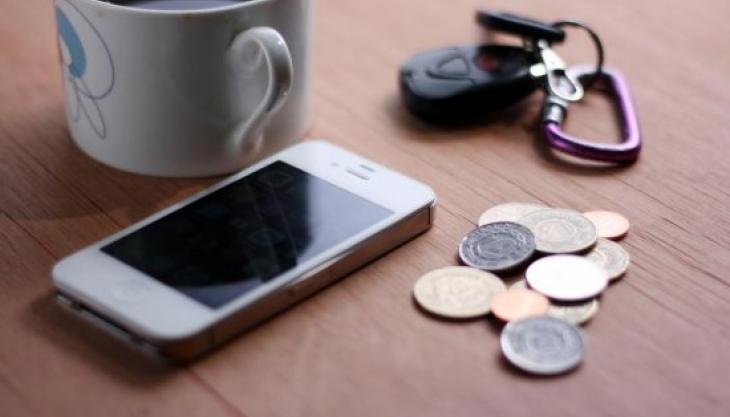Which Debts Won’t Be Discharged in North Carolina Bankruptcy? (Part 2)
Submitted by Rachel R on Fri, 01/27/2017 - 9:53am

Some debt will still stick around after bankruptcy
Image Source: StockSnap.io
North Carolina bankruptcy can get you back on the right financial track if you’re struggling with debt and have fallen behind on payments but not all debt can be discharged in bankruptcy. Whether you choose Chapter 13 or Chapter 7, you might come out of the process still owing some debts, but you'll be better off than when you started.
This is the second part of our two-part series looking at 20 types of debt that won’t be discharged in North Carolina bankruptcy. Be sure to read part one on some common debts that might not be dischargeable. Today, in part two, we’ll cover another 10 that are rarer and that most people won’t have in their debt portfolio.
#11 Criminal Restitution
Some court fines, penalties, and criminal restitution are nondischargeable in bankruptcy. If you injured someone while engaging in a criminal act and have been ordered to pay restitution, this debt will linger after your North Carolina bankruptcy.
#12 Cash Advances
If you took cash advances from your credit cards within 70 days of filing your North Carolina bankruptcy that total to $950 or more, these may not be dischargeable in bankruptcy if the credit card issuer objects once it receives notice of your bankruptcy petition.
#13 Luxury Good Purchases
Within three months prior to filing your bankruptcy petition, if you used your credit cards or other lines of credit to purchase luxury goods totaling more than $675, these won’t be discharged if the creditor objects. You may be able to fight those objections in court.
#14 Debt Obtained Through Fraud
Any creditor can object to the discharge of the debt you owe them in North Carolina bankruptcy. For instance, if you opened a new credit card account and maxed it out, it can look like fraud. Any debt you incur without the intention to pay it constitutes fraud.
#15 Debt From Willful and Malicious Actions
If you harmed a person or property willfully and maliciously, and incurred debt from a civil or criminal proceeding, the debt will not be discharged. This is a unique type of debt and due to the fact that it cropped up because of your intent to harm someone, shouldn’t be wiped out.
#16 Debt Owed for Larceny or Embezzlement
Larceny essentially means theft. If you stole money from someone or embezzled from your place of work and are ordered to repay those funds, that is debt that can’t be discharged. That goes back to the question of fraud and intent, but these occurrences are rare.
#17 Debt From a Prior Bankruptcy
If you filed bankruptcy in the past and the debt was not eligible for discharge in that case, it likely won’t be eligible for discharge in a second bankruptcy. Some exceptions might be student loans if your circumstances have changed dramatically and repayment would cause undue hardship.
#18 Debts Owed to an FDIC Entity
If you worked for a bank, credit union, or FDIC insured institution and engaged in fraud and were charged to repay some amount, whether via a court ruling or settlement, these debts can’t be discharged. Again, these is a rare occurrence.
#19 Fees Owed by Prisoners
For those that are incarcerated and file a case or appeal while a prisoner, there are fees incurred that may be owing after you are out of prison. If you file a North Carolina bankruptcy case after prison release, these debts can’t be discharged even if you’re impoverished.
#20 Debt From an SEC Violation
If you broke federal Securities and Exchange Commission (SEC) law or state law related to securities or engaged in stock or securities fraud and were ordered to pay a fine or penalty, that debt would not be dischargeable under bankruptcy law.
No matter your circumstances, if you’re stuck deep in debt you can’t afford and unsure what to do, bankruptcy might be your best solution for a fresh financial start. To find out more about the benefits of North Carolina bankruptcy, contact the Law Offices of John T. Orcutt. Call +1-833-627-0115 now for a free bankruptcy consultation at one of our offices in Raleigh, Durham, Fayetteville, Wilson, Greensboro or Wilmington.
Debts Hurt! Got debt? Need help? Get started below!
Serving All of North Carolina
- Bankruptcy Attorneys Raleigh NC (North)
- Bankruptcy Attorney Fayetteville NC
- Bankruptcy Attorney Durham NC
- Bankruptcy Attorneys Wilson NC
- Bankruptcy Attorneys Greensboro NC
- Bankruptcy Attorneys Southport NC
- Bankruptcy Attorneys Wilmington NC
Bankruptcy Attorneys Raleigh NC (North)
6616 Six Forks Rd #203 Raleigh, NC 27615 North Carolina
Tel: (919) 847-9750

Bankruptcy Attorney Fayetteville NC
2711 Breezewood Ave Fayetteville, NC 28303 North Carolina
Tel: (910) 323-2972

Bankruptcy Attorney Durham NC
1738 Hillandale Rd Suite D Durham, NC 27705 North Carolina
Tel: (919) 286-1695


Bankruptcy Attorneys Greensboro NC
2100 W Cornwallis Dr. STE O Greensboro, NC 27408 North Carolina
Tel: (336) 542-5993

Bankruptcy Attorneys Southport NC
116 N Howe St. Suite A Southport, NC 28461 North Carolina
Tel: (910) 218-8682

Bankruptcy Attorneys Wilmington NC
116 N. Howe Street, Suite A Southport, NC 28461 North Carolina
Tel: (910) 447-2987
